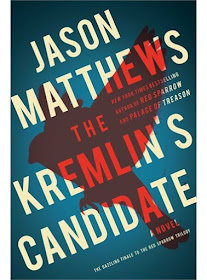It was a lovely evening at the McNally Robinson bookstore in
Saskatoon for the book launch of Volume 3 of A Literary History of Saskatchewan
earlier this week. Accompanying this post is a photo of myself with Editor,
Dave Carpenter, and Assistant Editor, Kelly Anne Riess.
Kelly Anne Riess was the MC for the evening. She spoke of some of the challenges
of assembling the book. She mentions them in her foreword:
It was a rodeo of
herding cats – very talented and hip cats. I speak as one of the cats in need
of herding.
Editor, Dave Carpenter, spoke about his desire over a decade ago
to document the history of Saskatchewan writing. Through the years he has put together the three volumes by searching out funding and contacting individuals to contribute
essays. To hear David is to know he is a man who loves writing and authors from
Saskatchewan. His knowledge of writing in Saskatchewan is remarkable in its
breadth and depth.
There are essays in the book on poets, short stories, fiction and
young adult writers. It is eclectic and wonderful.
Dave enlivened the evening through trivia questions on
Saskatchewan writers. He brought along candy to hand out to those who knew
the correct answers to such questions as Saskatchewan authors who are also
ornithologists. I knew of one, Trevor Harriot, but was too late in speaking up
to get candy.
A pair of contributors answered some questions from Kelly Ann
about their essays.
Tracy Hamon, a poet and arts administrator, spoke about her essay Neither Here Nor There: The Saskatchewan
Diaspora. She sent questionaires to four authors who have left the province
yet remain deeply connected to Saskatchewan. In her essay she states:
In my experience
writers do not stand beside the wheat to see the field, they stand on the hill
in the distance. Or maybe take a photo and stare at it for hours. This is
possibly how the diaspora works: writers who have moved from Saskatchewan
continue to yearn for their sense of community, so that at some point they feel
compelled to go back by including the location of Saskatchewan in their
writing. Nonetheless, the sentiments attached to writing about a location they
are familiar with, have lived in and have lived through, create that evocative
longing for place.
While I was not on the agenda Kelly Anne kindly added me to the program. She asked
me about why I thought mystery fiction should be a part of literary history.
I said there has been a perception among some members of the
literary world that crime fiction is at a lower level of literary fiction. I
said I disagreed. I said there is fine fiction being written by mystery
authors.
In the context of Saskatchewan I said Gail Bowen had established a
national and now international reputation for her series of Joanne Kilbourn
books.
I said Tony Bidulka had created a marvellous character in Russell
Quant, his gay Saskatoon private detective.
I went on to mention some common features of Saskatchewan mystery
writers I had highlighted in the essay. I said that of the five mystery authors
featured in my essay all but one featured sleuths with families. I added that
none of the sleuths created by those writers had ever killed anyone. Physical violence has
never been the solution for Saskatchewan sleuths.
In his introduction Dave provided comments on my essay that moved
me:
Melfort’s own Bill
Selnes has given us an intimate report from the field of mystery writing in this
province. I say “intimate” because he speaks of such writers as Gail Bowen,
Suzanne North and their characters as though they were all his neighbours.
Thank you Dave for inviting me to participate in the book and the
kind words in the introduction.






